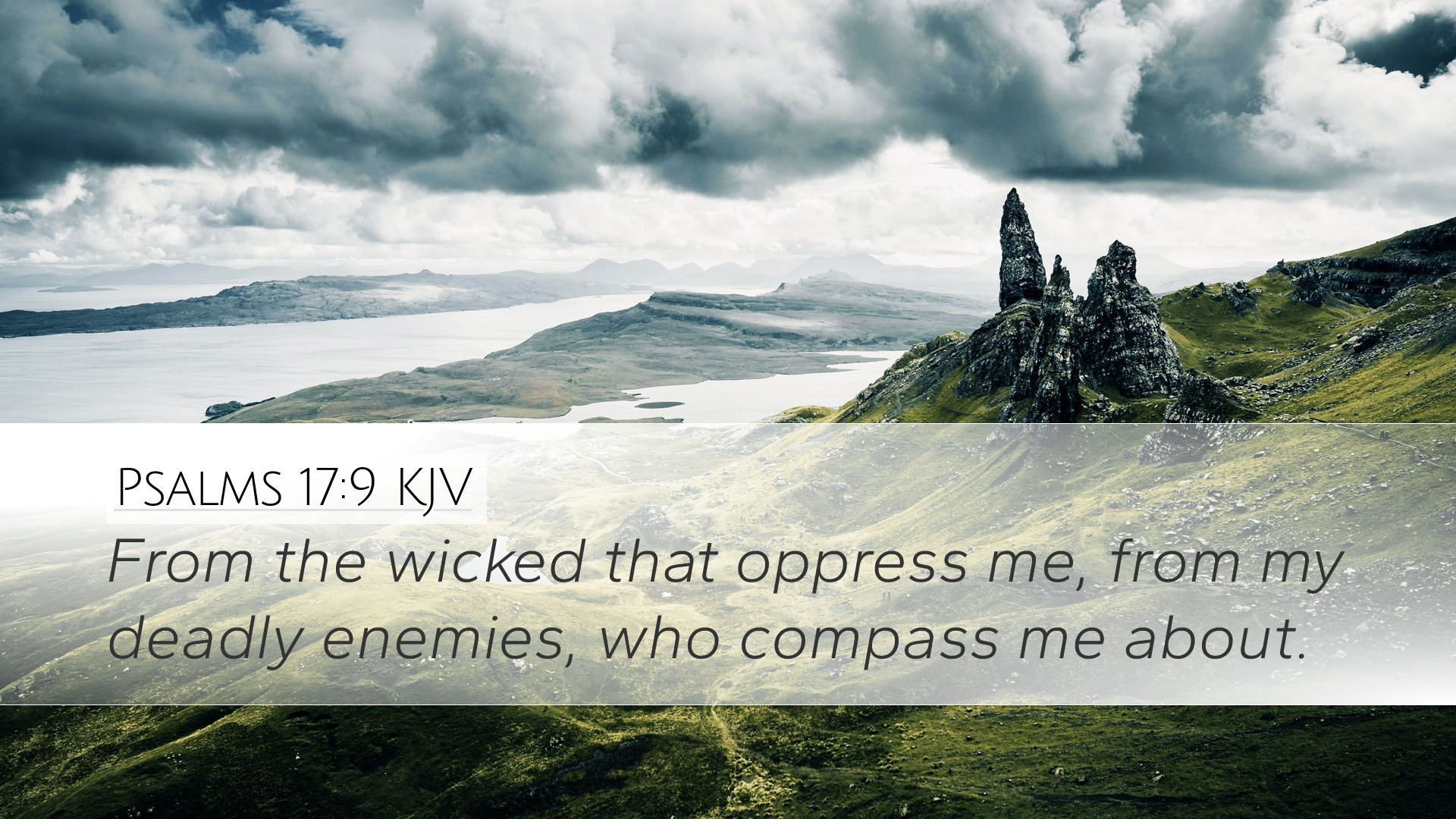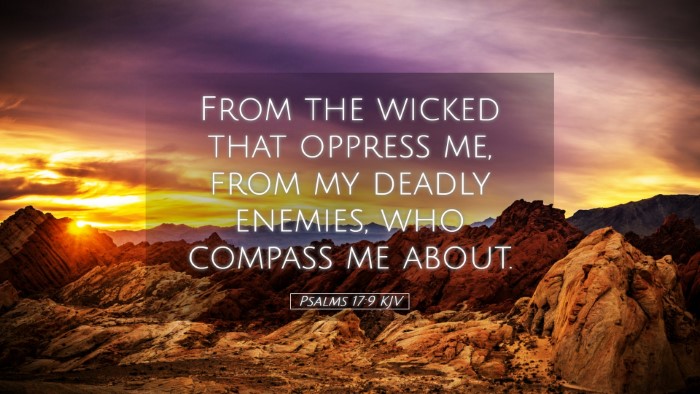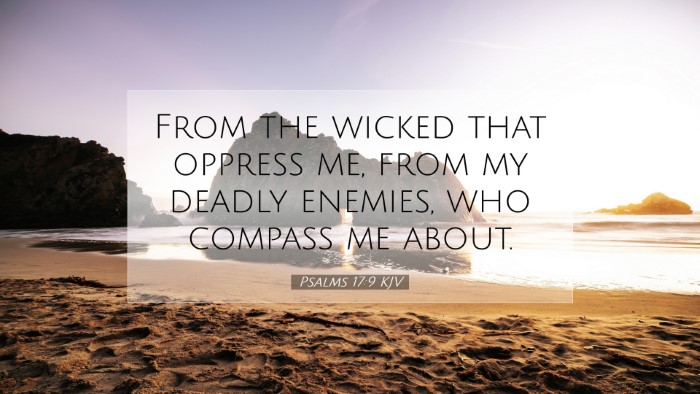Psalms 17:9 Commentary
Verse: "From the wicked that oppress me, from my deadly enemies, who compass me about." (Psalm 17:9)
Introduction
This verse serves as a poignant expression of the psalmist's plea for divine protection amid adversaries. Various commentaries explore the rich layers of meaning encapsulated in this cry for help. We draw insights from notable public domain sources to deepen our understanding of this text.
Context and Structure
Contextual Placement: Psalm 17 is classified as a prayer of David, who appears to be under serious threat. It is structured as an appeal to God for rescue, emphasizing the psalmist's trust in God's justice and righteousness.
Imagery and Language: The language used in this verse reflects urgency and desperation, illustrating the psalmist's awareness of the gravity of his situation. The term "wicked" denotes those who oppose God’s will, while "deadly enemies" suggests a dire threat to the psalmist's life.
Commentary Insights
We will now explore insights from three esteemed commentators: Matthew Henry, Albert Barnes, and Adam Clarke.
Matthew Henry's Commentary
Matthew Henry highlights the nature of the psalmist’s enemies as 'wicked' and 'deadly.' He notes that the oppression from such adversaries is two-fold: spiritual and physical. Henry asserts that the oppression is often a part of a broader divine test, allowing the faithful to seek refuge in God. He emphasizes the importance of recognizing that the righteous will always face opposition, but they have a assured hope in God’s deliverance.
- Oppression and Trial: The integrity of the psalmist is evident; he is described as someone who has continually sought after the righteousness of God.
- God as Refuge: Henry points out that this cry for protection serves as an acknowledgment of God’s role as a refuge in times of trouble.
Albert Barnes' Notes
Albert Barnes delves into the phrase "the wicked that oppress me." He notes that this often reflects those who cause suffering not just through overt aggression but also through social and political means. Barnes suggests that such enemies embody a system of moral depravity that seeks to undermine the faithful.
- Real and Present Danger: Barnes underscores that the psalmist is aware of the tangible threats surrounding him, hinting at a cultural context where oppression was common.
- Circle of Enemies: The phrase "compass me about" evokes imagery of being encircled by foes, heightening the sense of isolation and danger.
Adam Clarke's Exposition
Adam Clarke offers a deeper exploration of the languages used in the verse. He states that the psalmist's appeal emphasizes the disparity between the righteous and the wicked. Clarke proposes that this verse speaks universally to all believers facing persecution and oppression.
- Divine Justice and Retribution: Clarke emphasizes that God hears the cries of the oppressed and alludes to the eventual judgment of the wicked.
- Psychological State: He also reflects on the psychological implications of feeling surrounded by enemies, illustrating the emotional weight borne by the faithful in hope of deliverance.
Thematic Analysis
This verse can be analyzed through several important theological themes:
- The Problem of Evil: The presence of "wicked" individuals raises questions about the nature of evil in the world and the believer's response to it.
- Divine Protection: The psalmist’s cry reiterates the belief in God’s continuing presence and His willingness to protect the faithful.
- The Nature of Enmity: It highlights the relational dynamic between the righteous and the unrighteous, reinforcing that faith often invites opposition.
Practical Application
For pastors, theologians, and students, Psalm 17:9 serves as a meaningful reminder of the ongoing spiritual warfare experienced by believers. Reflecting on this verse can influence pastoral care approaches:
- Encouragement in Trials: It can inspire messages that encourage the faithful to rely on God when faced with adversity.
- Prayer Focus: This verse is a basis for intercessory prayer, where leaders can pray for protection over their congregations.
- Education on Righteousness: Teaching about integrity in the face of opposition can be drawn from the psalmist's example.
Conclusion
Psalms 17:9 encapsulates profound themes of strife, protection, and divine justice. Drawing from the works of Matthew Henry, Albert Barnes, and Adam Clarke allows for a richer understanding of the text and its implications for believers today. As we navigate life’s challenges, this verse reminds us of the importance of turning to God, our refuge, in times of peril.


